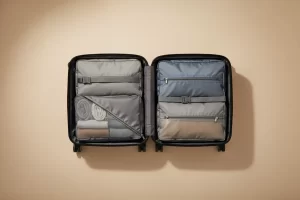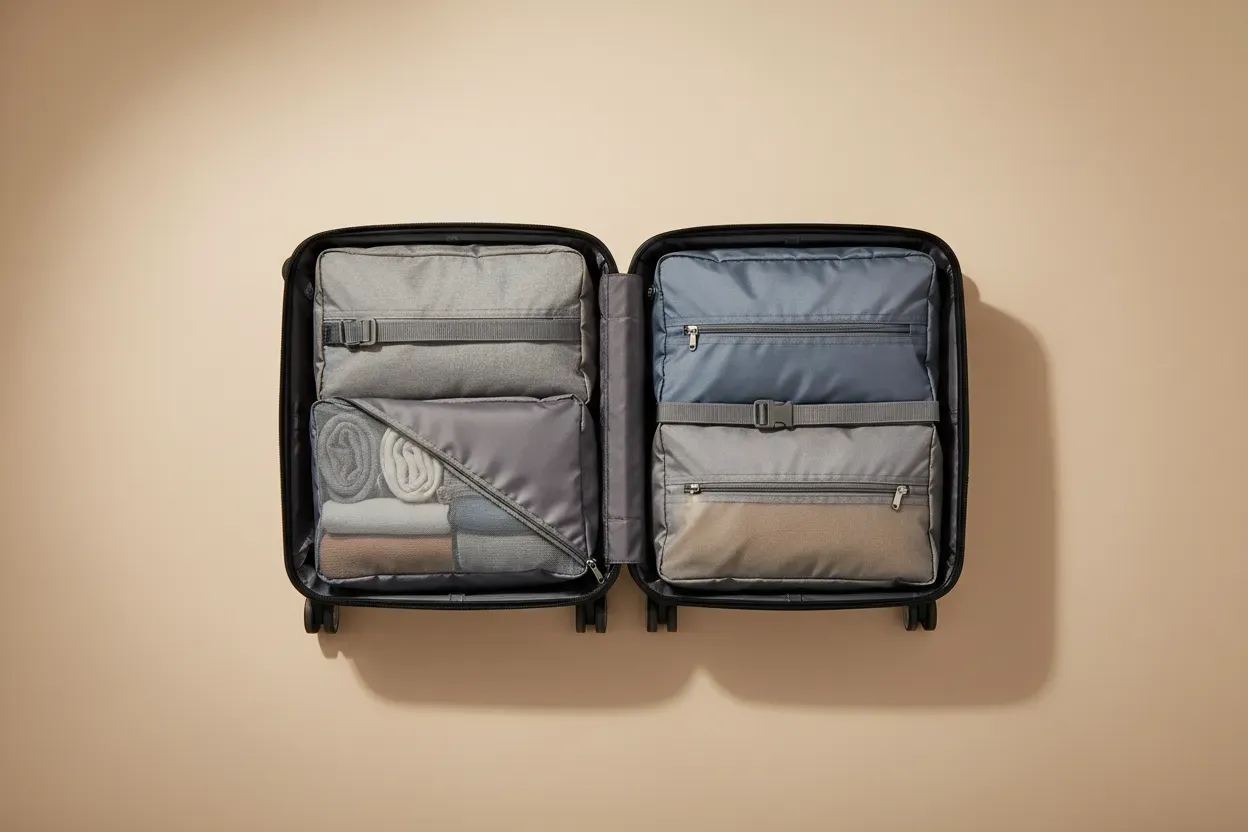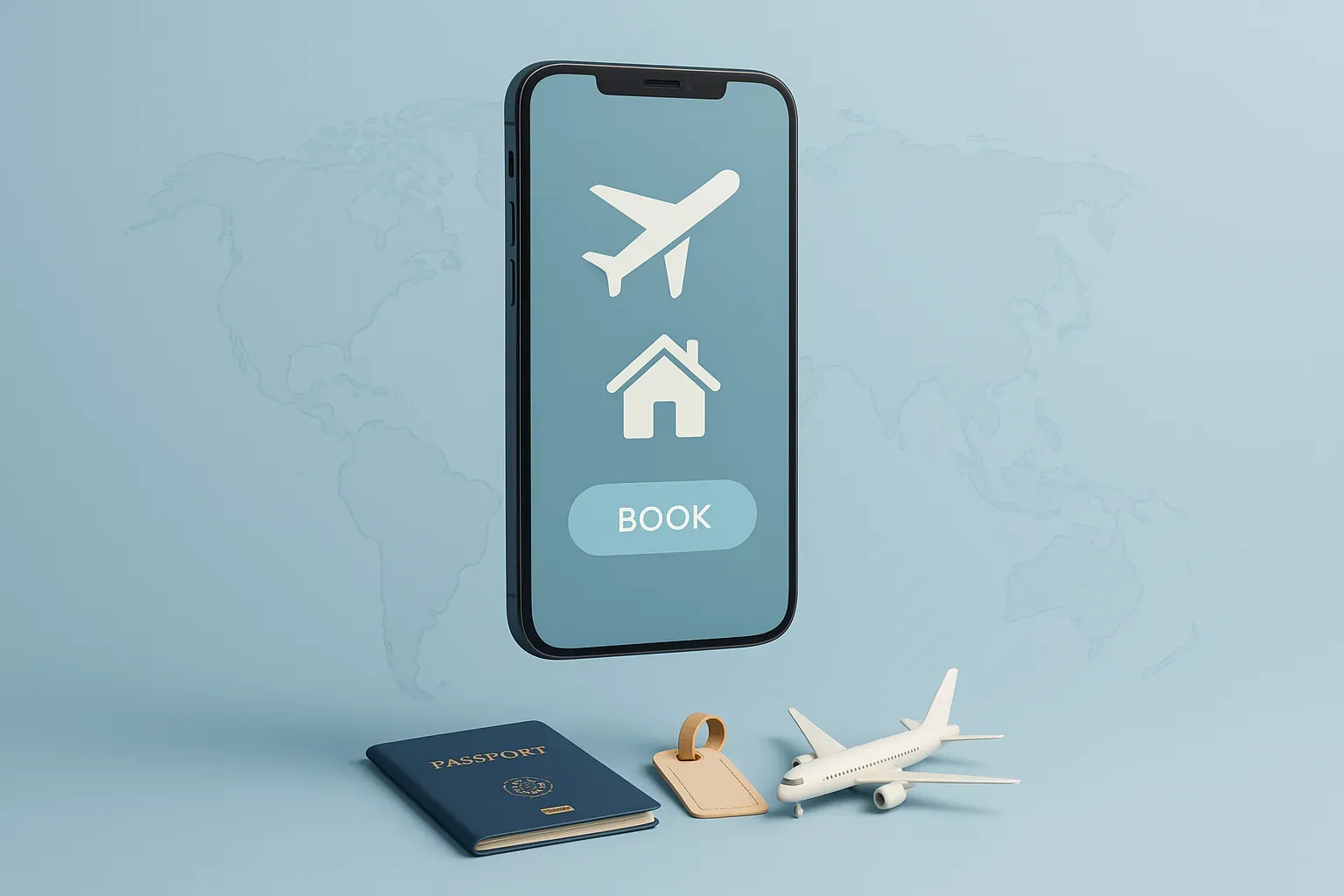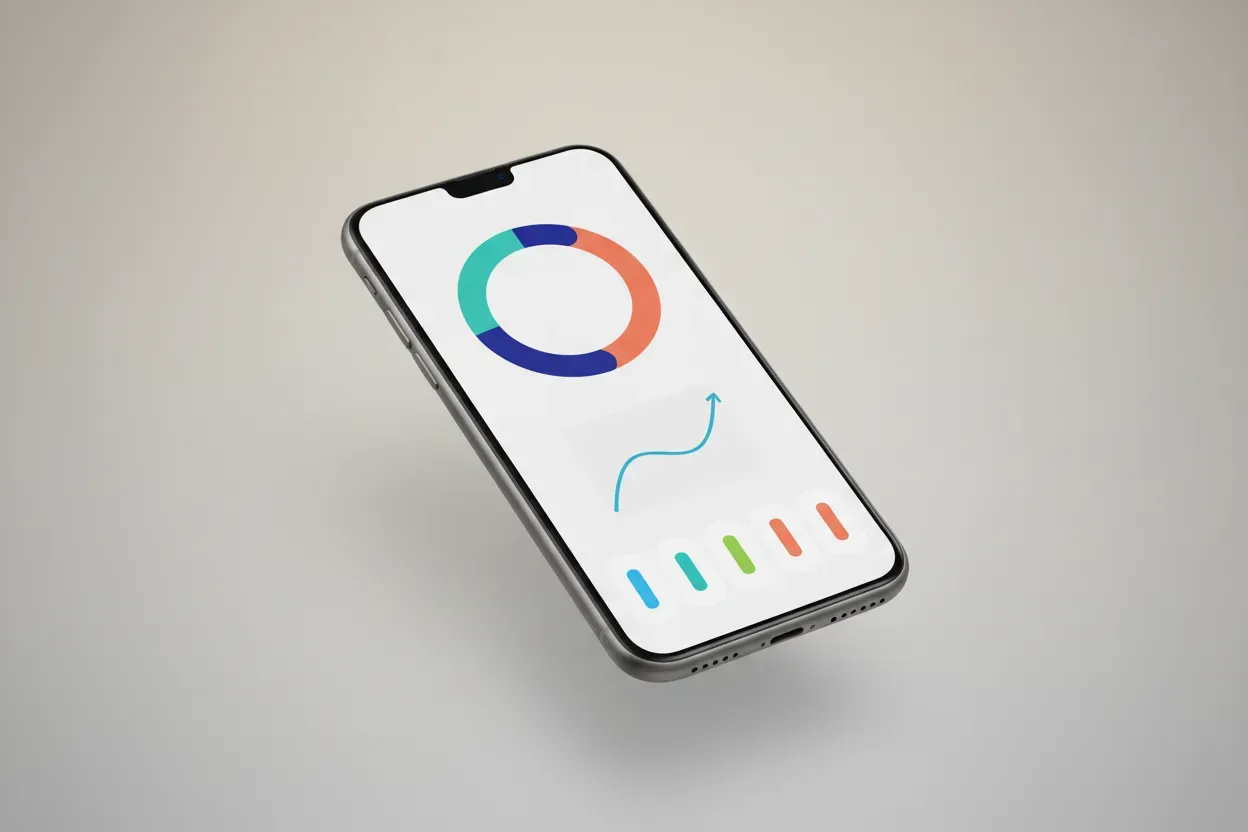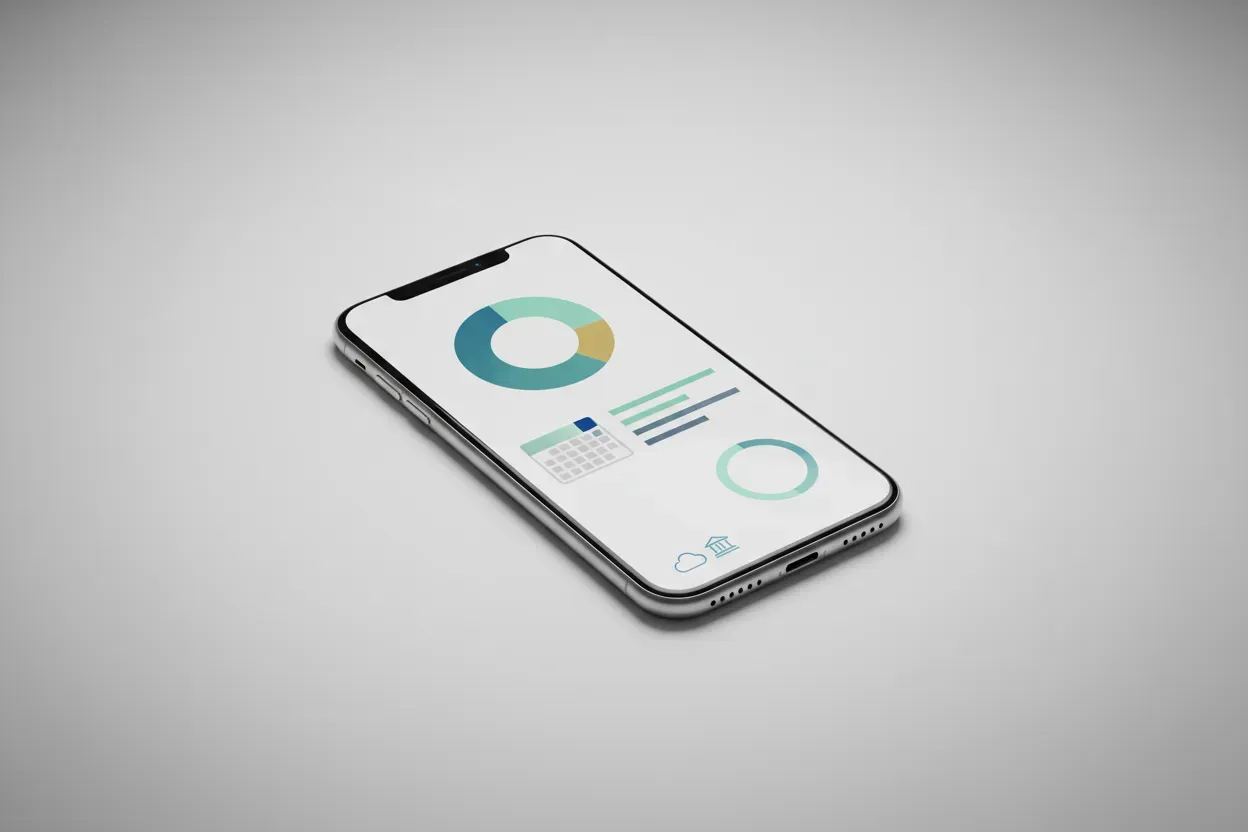10 Best Apps for Booking Flights and Hotels: Recommendations and Features
Finding the right travel booking app can save travelers both time and money, as shown by data from industry experts. The best apps offer unique features ranging from price predictions to budget-friendly exploration tools, all designed to simplify the booking process. This comprehensive guide examines ten powerful applications that travel professionals recommend for securing optimal flight and accommodation arrangements.
- Skyscanner for Flights, Booking.com for Stays
- Google Flights First, Then Book Direct
- Hopper Predicts Prices, Booking.com Offers Flexibility
- Skyscanner and Airbnb Make Discovery Effortless
- Google Travel Consolidates Without Pushing Upsells
- Hopper Alerts Save Money on Flights
- Expedia Puts Everything in One Place
- Kayak Explore Finds Options Within Budget
- Business Travel Platforms Streamline Expense Management
- Compare Multiple Sites for Best Flight Deals
Skyscanner for Flights, Booking.com for Stays
When searching for flights, I use a variety of apps and services, but I especially like Skyscanner. I find Skyscanner useful because it compares prices for different flights, provides a clear view of the different prices, and is straightforward. I love the “Everywhere” search option, which allows me to see different places I can go based on how much I want to spend. This helps plan leisure trips and business travel. I also like planning trips with less specific or no itineraries because it gives me more options.
When looking for a place to stay, I use Booking.com more than any other service. I like their flexibility. I can find places that suit my needs and am able to find comfort and balance it with cost because I can choose the filters by amenities, guest ratings, and other things. I am also able to find hotels close to airports and other important places on the map, which is important for me and my time management during travel. I travel a lot for business, so I appreciate their loyalty programs that give me additional travel perks like free upgrades and discounts.
Integration and convenience unite everything together. Both applications easily connect with Google Maps and calendar alerts, letting users see itineraries and monitor adjustments in real time. In travel, efficiency and flexibility are the most important, and these tools help me most importantly, giving me the ability to concentrate on providing my clients with smooth travel experiences rather than on the logistics.

Google Flights First, Then Book Direct
For flights, I usually start with Google Flights to see what’s out there, then book direct with the airline. The grid view makes it easy to spot cheaper days, and price alerts keep me ahead of sudden swings. I like being able to see nearby airports in one glance and add open-jaw or multi-city trips without fighting through clunky forms. Once I’ve decided, I book straight with the carrier. It means cleaner ticket control, clearer change policies, and faster help if there’s a weather change.
For hotels, I tend to lean on Booking.com when I’m on the road. The map filters, flexible cancellation, and quick messaging with the property save a ton of time. If I’m sending a team into the mountains late at night, being able to filter for 24-hour check-in and guaranteed parking is a real lifesaver.
The features that really matter are the simple, honest ones. Show me the real price with bags included, the aircraft type, the on-time track record, and whether a tight connection is actually doable. Let me save a fare, share the itinerary with one tap, and keep it all offline in case the signal drops.
For hotels, I care about accurate location pins, clear cancellation cut-offs written in plain language, and photos that reflect the actual room I’ll get. A good app also remembers the small things like booking a quiet room away from the elevators, noting late arrivals, and breaking down VAT for expenses. When those basics work, travel feels smoother and more predictable. It makes the whole thing feel easier.

Hopper Predicts Prices, Booking.com Offers Flexibility
Travel has always been a necessary rhythm of my entrepreneurial life — whether it’s attending conferences, meeting clients, or taking time to reset and gain perspective. Over the years, I’ve experimented with countless tools to make travel less of a logistical headache and more of a seamless experience. The one app I keep coming back to for flights is Hopper, and for accommodations, it’s Booking.com. Both for very different, but complementary reasons.
What I appreciate most about Hopper is its predictive intelligence. Early in my career, when every dollar mattered, I learned the hard way how inconsistent airfare pricing can be. Hopper’s price prediction feature taught me patience — it gave data-backed insight into when to buy and when to wait. That level of transparency took a lot of stress out of travel planning, especially during periods when I was constantly hopping between meetings across different time zones.
Booking.com, on the other hand, became my go-to for accommodations because of how adaptable it is to the way I travel. As the company grew, my trips shifted from budget-focused to convenience-focused — often needing flexible bookings that could change last minute. The app’s “free cancellation” and “pay later” options made that flexibility easy, especially during uncertain schedules. It’s one of those underrated features that saves you more than money; it saves peace of mind.
But what truly stands out to me, as someone who spends a lot of time thinking about user experience, is how both platforms have built trust through simplicity. They don’t just sell tickets or rooms — they reduce friction in decision-making. The experience feels intuitive, the data feels relevant, and the personalization feels genuinely useful rather than intrusive.
When I talk to clients in the tech and automation space, I often mention this: the best platforms don’t just process transactions; they build confidence. Whether it’s booking a flight or managing a team workflow, people value predictability and clarity above all else.
In a way, my travel apps have become quiet reminders of that principle — that great technology doesn’t just simplify logistics; it gives people back their time, energy, and sense of control.
Skyscanner and Airbnb Make Discovery Effortless
I personally rely on Skyscanner for flights and Airbnb for accommodations. What I appreciate most is how both platforms make discovery and comparison effortless. With Skyscanner, I can instantly filter by flexible dates, preferred airlines, and price trends, which saves hours of manual searching. Airbnb, on the other hand, lets me preview spaces with detailed reviews, neighborhood insights, and flexible cancellation policies, so I can book with confidence even for last-minute trips.
The features I value most are transparency, convenience, and actionable information, tools that don’t just show options but help me make smarter travel decisions quickly. It turns planning from a chore into part of the experience itself.

Google Travel Consolidates Without Pushing Upsells
I rely most on Google Travel when planning business trips because it simplifies everything from flight comparisons to hotel logistics in one place. What I appreciate most is how it consolidates options without pushing upsells or unnecessary extras. I can filter flights by layover length, airline, or baggage policy, which saves time when traveling between Texas property sites or meeting partners out of state.
The timeline view for hotels has also been a real advantage. Seeing prices mapped over several days helps me plan trips around affordability instead of locking into fixed dates. Once booked, the integration with Gmail automatically organizes confirmations, keeping everything accessible from one dashboard. It’s a small detail, but that structure reduces mental load during travel, letting me focus on clients instead of logistics.

Hopper Alerts Save Money on Flights
I travel constantly between our Palm Harbor and Oldsmar locations, plus I’m hitting cannabis industry conferences and trade shows across Florida and nationally for my work with the Hemp Committee at NCIA. For flights, I use Hopper because it tells me exactly when to buy—it’ll literally send a push notification saying “prices just dropped $47, book now.” That feature alone saved me $340 on a round-trip to a conference in Denver last year.
For accommodations, I stick with Airbnb’s business travel portal. When I’m visiting farms to source our THCa flower or attending multi-day industry events, I need a full kitchen and workspace, not just a hotel bed. The weekly rate discounts are huge—I paid $480 for a week in Colorado versus what would’ve been $850 in hotels.
The game-changer feature for me is calendar integration. My schedule is packed between chamber meetings, farm visits, and managing two retail locations, so anything that syncs with my Google Calendar and sends reminders automatically is worth its weight in gold. I’ve missed exactly zero flights since switching to apps that do this.

Expedia Puts Everything in One Place
Opening Dirty Dough franchises keeps me on the road all the time. I use Expedia for everything because it puts my flights and hotels in one place. The filters are genuinely helpful when I need a gym or a specific workspace, and having all my bookings in a single app makes the whole trip less of a headache. Sync the confirmations to your calendar right away so you’re not scrambling for your next gate or meeting address.

Kayak Explore Finds Options Within Budget
What I use is Kayak. It’s been around a while, but it still holds up—especially when I need to compare flexible travel dates or bundle flights and stays. What I like most is the Explore feature. If I’ve got open dates and want to see where I can go within a budget, it gives me options I wouldn’t have thought of.
Also, Kayak’s price forecast tool is surprisingly accurate. It’ll tell you whether to book now or wait based on trends. That’s been handy more than once when planning conferences or last-minute getaways without overpaying.

Business Travel Platforms Streamline Expense Management
Travel’s a big part of my job, so I’m usually on TripActions or Amex GBT for flights and hotels. When I ran GRIN, managing executive travel got complicated fast. We needed a way to see spending without hunting for it, especially when board reports were due. Now, I like having bookings, loyalty points, and receipts all in one place. It means I’m not stuck sorting paperwork and can actually focus on the work that matters. Just make sure whatever you pick syncs with your accounting. It saves a massive headache later.

Compare Multiple Sites for Best Flight Deals
I always have multiple browser tabs open to compare deals and options when I fly. I’ll compare Kayak, Priceline, and other platforms side by side to catch hidden fare drops or package perks. I usually fly out of LaGuardia or JFK, depending on price and perks. I use sorting and filters to zero in on the best mix of value and comfort. When I fly alone, I aim for budget flights including red-eyes and layovers. When I fly with my wife or other companions, I give more weight to comfort and direct flights. To this point, filtering for time of day and layover information is crucial.






